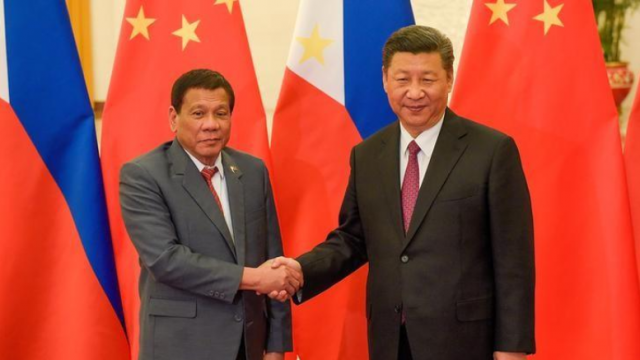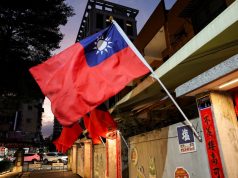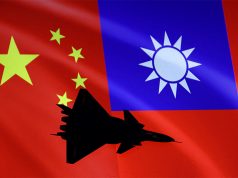
Two ways to approach territorial spats: Resolve the territorial dispute first, then move on with the relationship. Or move on with the relationship, cultivating improved understanding and trust so that the two sides can eventually resolve the dispute.
Professor Ruan Zongze of the China Institute of International Studies was visiting the Ayala Museum in Makati City on Thursday when he saw a collection of Chinese ceramics. It reminded him of the centuries-old shared history of the Filipinos and Chinese, who were trading partners even before the Philippines gained independence in the modern era.
In Manila for a forum on China’s “One Belt, One Road” initiative that aims to renew the trading routes along the ancient Silk Road, Zongze was glad to note “the new chapter for China-Philippines ties” that was ushered in by President Rodrigo Duterte’s visit to China last year after a few “confrontational” years between the two nations.
For Zongze, the two countries could now cooperate with each other on a range of activities: Anti-terrorism, anti-illegal drugs, economy and trade, people’s well-being, defense, arts and culture, and infrastructure.
Unfortunately, there was the “sad reality” of one main hurdle for cooperation between the two: the dispute in the South China Sea.
Just this week, Magdalo Representative Gary Alejano sounded the alarm regarding the supposed presence of Chinese Navy and Coast Guard vessels north of Pagasa Island in the Spratlys.
(Read more: http://www.interaksyon.com/cayetano-plays-down-alejanos-alarm-over-chinese-boats-sighting/)
The Philippines and China had some overlapping areas and conflicting claims. Nevertheless, Zongze believed the two should proceed with joint exploration of the area.
This need not affect or involve their respective legal systems, the academic said. Neither did it mean the Philippines or China would be giving up its sovereignty or territorial integrity.
Because the dispute was so complex and difficult to solve, said Zongze, it was better to share and cooperate with each other.
The academic acknowledged that both Chinese and Filipinos might find the idea ludicrous. They would ask, “Why should we pursue joint exploration with the Philippines when we have sovereignty?,” and vice versa.
But, said Zongze, it was necessary for the two countries to cooperate so as to benefit both populations, which deserve better lives and decent jobs.
“We need to identify the middle [ground] … share the benefits, the resources, together,” he said.
The Philippines and China must agree on common rules and arrangements acceptable to both sides, work together, and consult with each other.
There were two ways to approach territorial spats, he said. They could resolve the territorial dispute first, then move on with the relationship; or they could move on with the relationship despite the dispute, cultivating improved understanding and trust between the two sides so that they can eventually resolve the territorial dispute.
The latter was the better tact, Zongze believed.
“We need to cultivate, first of all, to strengthen trust with each other by moving on with the bilateral relationship, at the same trying to manage those disputes and differences in a smart way,” he added.
Zongze called on both countries to be “creative” in coming up with a way to manage the dispute without letting it derail their cooperation and friendship. He was confident this would be possible because China had been able to reach a maritime border agreement with Vietnam, which was a “tough guy”.
Zongze acknowledged that there were some concerns with conducting bilateral negotiations with China, as it was seen as a big and strong country, and the other country would think it was not in a good position. But he stressed that China, through years of negotiations, had settled a border dispute with the former Soviet Union, which was by no means a small country, and indeed was a superpower. And now the two had 4,300 kilometers of shared borders. Because the dispute was addressed, the two now have many trading posts.
“That’s making money, not making enemy. That’s the point,” he said.
He also recalled that, in 2004 and 2005, China reached an agreement with the Philippines for joint exploration, and even got Vietnam involved, but it had been short-lived after the change in administrations.
Policies have to be consistent regardless of transitions in leadership. Zongze observed that in democratic countries, each succeeding government tended to cut ties from the previous one. For its part, China was in a better position to preserve policies, Zongze said with a laugh.
As early as the administration of former President Corazon Aquino in 1988, he added, China had already proposed a joint exploration with the Philippines.
Last month, Foreign Affairs Secretary Alan Peter Cayetano disclosed that the two countries had started negotiations on a proposed joint oil exploration project in the West Philippine Sea.
(Read more: http://www.interaksyon.com/planned-ph-china-joint-oil-hunt-within-wps-to-conform-to-constitution-dfa/)
He assured the public that any agreement would “not give up a single inch” of the country’s territory.








